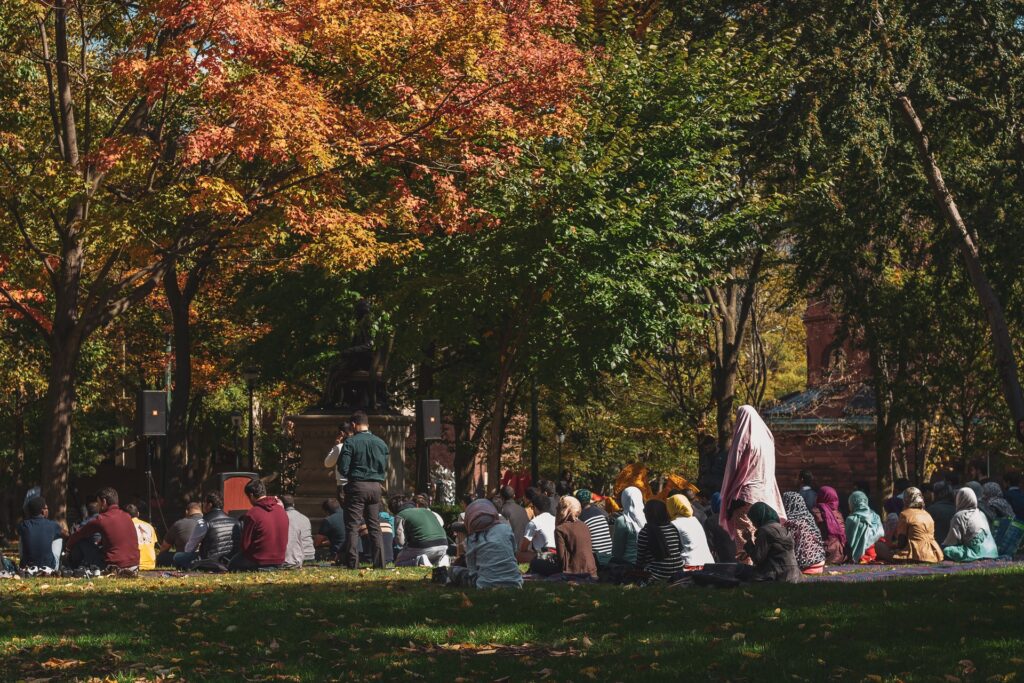In a world of total work, we never feel rested.
Like a shadow, anxiety follows us everywhere.
And the primary source of anxiety is the use of our time.
Everything needs to be productive, efficient, and skillfully planned.
We need to stay in motion; one task following the other.
Once we reach exhaustion, we don’t rest from work. We rest for work so we can have a fresh start.
In this frenetic rhythm, we try to have a work-life balance.
But how can we balance parts of our life that seem competing against each other?
When we fail to conciliate work, relationships, and ourselves, we turn to work and ignore the rest.
Trapped in a loser game, we end up reducing our humanity to our functionality.
Work is the reference

‘Total work’ is a term coined by the German philosopher Josef Pieper in his book Leisure: The Basis of Culture.
When work dominates every single part of our existence, it becomes a unity of measure.
The Hercules of today is the super worker. The one that sleeps little, works a lot, and never takes a day off.
And because super workers are ahead in life, they are considered a human ideal.
By extension, the difficulty becomes the reference for what is good and worthy.
The underlying message is clear.
What is natural and easy is not good. The good should be difficult.
As Pieper wrote: “The more difficult a thing, the higher it is in the order of goodness.”
Associating worthiness and goodness to the difficulty is not something new.
More than 200 years ago, Immanuel Kant reduced intellectual work to reason and logic.
For him, contemplation is effortless. Therefore, it worth nothing.
The total work mindset also impacts education.
What matters today is skills. We train people for the specific. We want them to be functional.
But education is different from professional training.
Education aims to teach the whole and the general. It doesn’t care about utility.
When the total work takes over, we reduce all human activity to the functional.
By doing so, we put the human spirit in jail.
How do you know you are not a total worker?

By the place leisure has in your life.
For a total worker, leisure seems to be a useless activity.
Leisure is the opposite of work.
If work is an effort and a chore, leisure is joy and celebration.
If work is motion, leisure is stillness and calmness.
At its origin, leisure meant the place where we educate and teach.
In Greek, leisure is skole, and in Latin scola, the English “school”.
So we are supposed to learn something from our leisurely time.
Something different from what we learn working.
It’s Emperor Hadrian who said:
“The daily business, the daily life, the daily chores, kills the human being.”
Many paintings portray the Romans laying around doing nothing. They call it otium. Another Latin word for leisure.
‘Doing nothing’ to engage in reflection is not laziness or idleness.
In medieval times, they had a fascinating meaning for idleness.
A man engages in idleness when he “does not want to be as God wants him to be, and ultimately means that he does not wish to be what he really, fundamentally, is.” [Leisure: The Basis of Culture]
In other words, the idle is someone who refuses to be him or herself.
This is the fate of the total workers. They can neither be God-conscious, nor they can know themselves.
The conditions for leisure

Leisure is an attitude of the mind and a condition of the soul.
It requires calmness and silence.
True silence, as Wendell Berry wrote, is when “one’s inner voices become audible.”
It’s only when we let things go, unplanned and mysterious, that we can experience the serenity of leisure.
About letting things go, Pico Iyer wrote in The Art of Stillness:
“Going nowhere …isn’t about turning your back on the world; it’s about stepping away now and then so that you can see the world more clearly and love it more deeply.”
By engaging in leisure, we’re experiencing the world in a different aspect than we normally do.
It’s a relaxed and effortless state.
But if leisure is beneficial, why it’s hard to dedicate time for it?
For many reasons.
- When we remove spirituality from our life, we become unable to appreciate leisure. The result is time killing and boredom.
- When we sit with ourselves, we might not like what we see. So we keep ourselves busy.
- In a world where the tyranny of total work prevails, we always have the fear of missing an opportunity.
The challenge today is not to work more but to have free-guilt moments of rest.
Wisely used, these moments of rest can help us simplifying ourselves and our lives.
Then, everything takes its due place.
The secular and the spiritual, the mind and the soul, the solitude and the company. All cooperating with each other.
What is God saying about rest?

The 4th commandment of the Hebrew Bible is Remember the Sabbath and keep it holy.
Sabbath simply means stop. Cease work to engage in a different activity. Engage with God, the creation, others, and yourself.
Muslims have a similar command on Fridays:
O believers! When the call to prayer is made on Friday, then proceed ˹diligently˺ to the remembrance of Allah and leave off your business. That is best for you, if only you knew.
[Quran 62:9]
In another verse, we are reminded to not let the worldly affairs make us forget the remembrance of Allah:
“Those of you who have Iman, don’t allow your monies and your children take you away from the remembrance of Allah. And whoever does that, then they are the ultimate losers.”
[Quran 63:9]
There’s always a way to go around divine commands.
A Shabbat elevator allows the Jews to use elevators without operating electrical switches.
Some Muslims will come at the last minute for the Friday prayer and carry on with their lives.
This defeats the purpose.
The essence of “leave off your business” is to make time for divine worship.
On Fridays, we can listen to the preach or read Surah Al-Kahf.
Today, it is easy to overlook God. Especially with modern technologies that constantly remind us about work. Rest becomes more important than ever.
Final thoughts on total work

The historian Arnold Toynbee identified a recurring pattern that evolves a primitive society into a civilization.
He found that the individuals who initiated the change process are obeying a law. He calls it withdrawal-and-return.
These creative people withdraw from society to develop in solitude their knowledge, wisdom, and strength.
Just like Zarathustra of Nietzsche, they ‘descent from the mountain’ and return to society to benefit everyone.
St. Paul, the Buddha, or Muhammad (PBUH) are some examples given by Toynbee.
If there’s one thing to retain from this article it would be the invitation it contains.
An invitation to go back to our ‘cave’ regularly.
It’s the key to do better work, connect with God, and ultimately, become a complete human being.
Consciously or not, we’re complexifying our lives.
And one way to simplify it is to remember Pascal’s quote:
“All of humanity’s problems stem from man’s inability to sit quietly in a room alone.”
Article posted the 28 February 2021
Previous Articles
- On Developing the Love for our Best Work
- The Future of Education: Better, Shorter, Cheaper?
- Deschooling Our Minds: The 3 Lessons To Expel
- A Few Thoughts For Muslims
- The Blue Economy or How to Make Change Appealing
- Biomimicry: When Looking at the Creation Helps Solving Problems
- Scary AI and The Need For a Brain Optimization
- Can AI Be a Better Ruler?
- How the Prophet Transformed the Companions?
- Are Muslims Meant to Be Sleep Deprived?
- Muslims Judging Each Other: Why and How to Be Less Judgy
